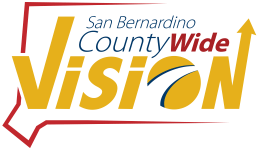 Redlands-based mapping software giant Esri, operated and founded by Redlands native Jack Dangermond, has made a major commitment to America’s K-12 and STEM (Science, Technology, Engineering and Mathematics) education efforts, pledging to provide $1 billion in mapping software to 100,000 U.S. schools.
Redlands-based mapping software giant Esri, operated and founded by Redlands native Jack Dangermond, has made a major commitment to America’s K-12 and STEM (Science, Technology, Engineering and Mathematics) education efforts, pledging to provide $1 billion in mapping software to 100,000 U.S. schools.
Esri announced on Tuesday that it will make its advanced mapping software ArcGIS available to K-12 schools across the country. Through the program, students will now have access to the cloud-based software — the same GIS technology used by governments and businesses — to map and analyze data.
“Geographic Information System technology gives students powerful tools for understanding our planet, and teaches them to become problem solvers,” Dangermond said. “It is a perfect complement to STEM courses and many other classroom activities, while preparing students for further education and expanding career opportunities in fields that can help better manage our world, build better lives for more people, and design a better future.”
According to Forbes magazine, it all started when Dangermond met with President Obama a few months ago to discuss how Esri can contribute to the ConnectED Initiative, a program by the White House to help strengthen STEM education for K-12 students across the country. “I asked myself: ‘What’s the biggest idea that we can go for?’” Dangermond recalled in an interview with Forbes. As soon as he proposed that Esri would offer its software for free for every K-12 school in America, the President was immediately on board. “We thought this is a way to scale it up and bring GIS education to schools in the whole country,” Dangermond said.
By bringing the tool to K-12 classrooms across the country, Dangermond is hoping that students will learn “creative problem-solving” through hands-on projects. He gave an example of “Get The Lead Out,” a project in which students in Detroit used the company’s software to identify environmental issues and come up with plans to fix them. “It let kids to use analytics and come up with ideas for their own communities,” Dangermond said. “The kids learned citizenship, science, problem-solving, and political involvement.”
While bringing the mapping software to all the public K-12 schools is a big step forward, Esri has experimented with the initiative on a smaller scale over the past few years in different states. Students who benefited from the program have researched a wide array of topics, from mapping out health issues in Los Angeles to using demographic data to get Walmart products delivered to returning veterans, according to the billionaire.
“This kind of project-based learning is going to have an impact on the students,” Dangermond said. “We have to build a better education in this country. We need to step it up.”
